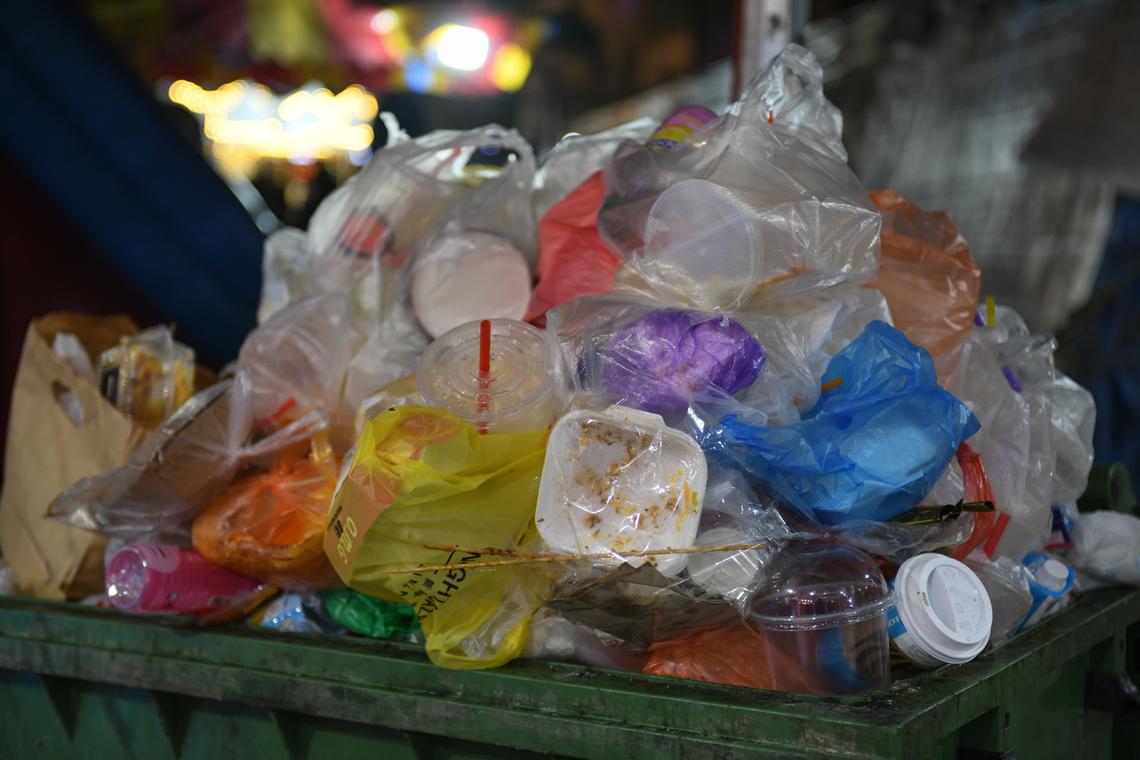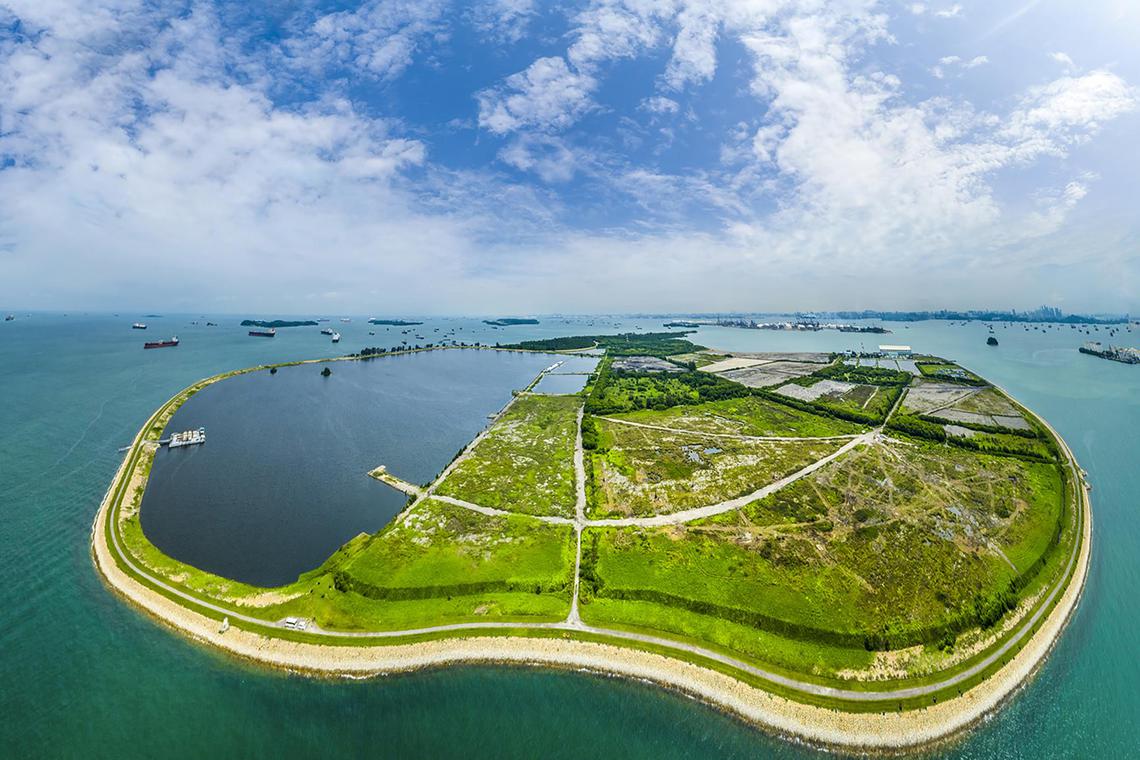SINGAPORE – Singapore is creating what is said to be a world-first digital “passport” for plastics to boost recycling as its sole landfill in Semakau is running out of space in 10 years.
The digital passport system tags plastic at a molecular level to track its provenance and recycling. The records are written on a blockchain, allowing the irrefutable passport data about the plastic’s origin, composition, reuse cycles and disposal to be exchanged among plastic manufacturers, recycling firms and the authorities for auditing purposes.
The multi-year effort is being led by A*Star, in partnership with Nasdaq-listed Security Matters.
Other materials earmarked for recycling using the same technology include metals and rubber.
“This is not just a plastics project,” Professor Lim Keng Hui, A*Star’s assistant chief executive of the Science and Engineering Research Council, told The Straits Times.
Through their initiative, A*Star and Security Matters hope to lift recycling rates here and reduce the amount of waste sent to the Semakau landfill, in line with
Singapore’s Zero Waste Masterplan
.
In 2024, Singapore’s domestic recycling rate
fell to a historic low of 11 per cent
, which is poor by developed world standards, due to high contamination rates and poor waste economics management. Japan, for instance, has a higher domestic waste recycling rate at 20 per cent.
Waste economics involves examining the cost and revenue potential of recycling.
Singapore incinerates most of its waste, including plastic. At present, about 2,000 tonnes of incineration ash and non-incinerable waste are sent to Semakau daily.
Under the Zero Waste Masterplan, the Republic aims to achieve an overall recycling rate – including industrial and commercial waste – of 70 per cent by 2030, from a low of 50 per cent in 2024.

The digital passport system tags plastic at a molecular level to track its provenance and recycling.
ST PHOTO: SHINTARO TAY
The targeted domestic recycling rate is 30 per cent by 2030.
As part of overall plans to extend the lifespan of Singapore’s only landfill beyond 2035, the National Environment Agency is studying the use of waste materials from Semakau as fill material for the Tuas Port reclamation project. Tuas Port, which
opened partially in 2022
, is expected to be completed some time after 2040.
Studies are also ongoing to use incineration ash as base material for roads and footpaths and as an aggregate in non-structural concrete to reduce the amount of landfill ash.
In setting up the digital passport for recyclables, A*Star brings to the table its spectroscopic detection and material profiling technologies, while Security Matters supplies its patented molecular marking, reader and blockchain technologies.
Spectroscopic analysis breaks down light into its component wavelengths that reveal a material’s composition and physical properties. Molecular-based marking involves embedding invisible tags into plastics, textiles, metals and rubber for tracking.
A blockchain is a searchable digital ledger whose information cannot be forged. This allows the authenticity of a product to be tracked, as well as any material alteration or change of ownership to be recorded and validated.
For the first three years of the digital passport project, the recycling of plastics from bottles and laminates will be tracked, said Mr Haggai Alon, founder and chief executive officer of Irish firm Security Matters.
Security Matters has already inked deals with Singapore-based firms Aegis Packaging, Skypac Packaging and Bio Packaging to collect, recycle and trace more than 5,000 tonnes of plastic waste annually from the first quarter of 2026.
It is in talks with 40 more companies, including virgin plastic producers, to create a larger ecosystem of manufacturers, waste collectors, recycling firms and brand owners across the region.
“This is the first time an entire nation has piloted a digital passport for plastics at scale,” said Mr Alon. “The digital passport can set a precedent for other countries grappling with overwhelming plastic pollution, landfill crises and spiralling municipal waste management costs.”
The passport can be read by Security Matters’ proprietary reader, while A*Star’s artificial intelligence capabilities allow the digital records to be analysed and shared.
A*Star and Security Matters hope to license their technologies, and will share the revenue.
Knowing what is in plastic waste allows recycling firms to sort and extract specific resins to be recycled for specific purposes. The quality of such resins is crucial. For instance, polyvinyl chloride cannot be recycled for food packages due to safety concerns, but it can be turned into non-food-related products, such as pipes.
“This is more than a project,” said Mr Alon. “It’s the blueprint for real systemic change. Globally, existing plastic credits only address waste collection at the end of the chain. They don’t change how plastics are produced and circulated.”
Stricter waste management rules may also provide the imperatives for such tracing, he added.
Singapore has introduced a legal framework to hold producers responsible for the management of their packaging waste. The first phase of this Extended Producer Responsibility framework focuses on collecting and recycling beverage containers.
A 10-cent deposit on bottles and cans, which can be redeemed by consumers upon return, will be rolled out in April 2026 to boost domestic recycling. Manufacturers or importers of pre-packaged beverages in plastic and metal containers must cover the cost of collecting and recycling the bottles and cans.
South Korea, the Philippines and Vietnam have also introduced similar schemes, while Malaysia, Thailand and Indonesia are still developing their frameworks to tackle pollution.
“Incineration alone isn’t a sustainable solution for Singapore or any country any more,” said Mr Alon.
Stage 1: Resins are derived from fossil fuels, like crude oil or natural gas.
Stage 2: Molecular markers are inserted into every kilogram pellet of virgin plastic.
Stage 3: Manufacturers turn the virgin plastic into bottles, laminates or other products.
Stage 4: Brand owners put their labels on the plastic and use it to bottle drinks or as containers for other products.
Stage 5: Recycling firms collect used plastic products and sort them according to their grades.
Stage 6: Recycling firms extract specific resins to be recycled for specific purposes. For instance, polyvinyl chloride cannot be recycled to be used in food packaging due to safety concerns, but can be turned into non-food-related products, such as pipes.
Stage 7: At every stage, data about the plastic’s origin, composition, reuse cycles and disposal is recorded and validated on the blockchain.

